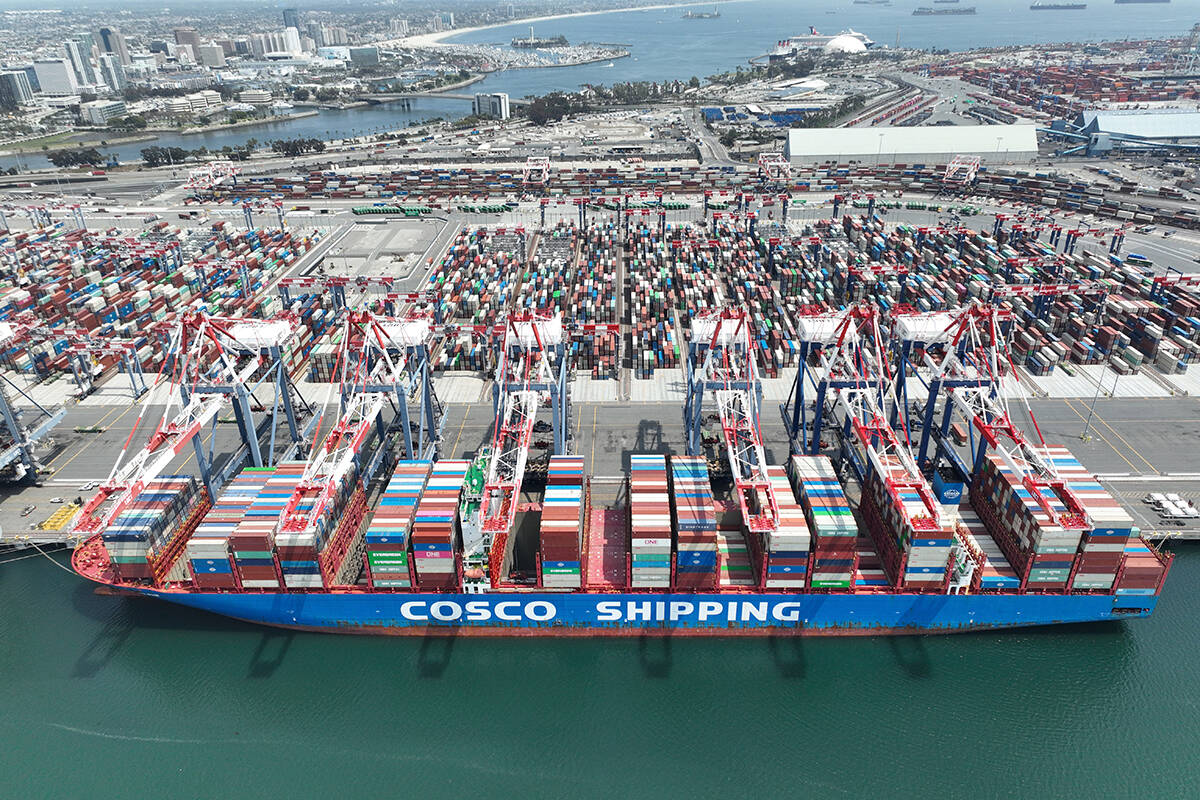Ad de Koning appreciates having more options when selling his grain, but says the Canadian Wheat Board needs to go further.
The board in recent years has introduced several pricing and payment options that it says give prairie farmers more choice than other producers around the world.
During a CWB accountability meeting in Brandon last week, board speakers said an increasing number of producers are embracing those options.
De Koning, whose family farms near Eden, Man., has used some of the producer payment options, but has found they have limitations.
Read Also

U.S. softens fees on Chinese shipping
The U.S. starts charging new fees on Chinese ships on Oct. 14. What are the ramifications for their ag exports?
“I think they’re going in the right direction,” he said in an interview. “I just don’t want them to take a break here and stop because they have a long ways to go yet.”
For example, he said, if he’s using the fixed price contract on an agreed-to quantity of grain, he wants a guaranteed delivery time. That would give him a clear idea of when all the grain contracted under that option would be out of his bins.
“All the other futures contract that we have on different commodities have delivery dates on them.”
De Koning has used the basis payment and fixed price contracts available through the wheat board as well as the early payment option. The basis contract is the only one that appeals to him.
“You like to secure part of your production,” he said. “After all, this is business.”
In 2003-04, the most popular of the programs was the early payment option, with more than 8,000 producers signed up, according to the wheat board. This year, the use of fixed price contracts has surged.
Mel Pawlyk, the CWB’s manager of producer payment options, said producers were slow at first to enrol in the programs. Participation has increased as people learn how the programs could fit with the needs of their individual farms.
“Everybody, when these first came out, was kind of sitting on the fence and waiting to see how they worked.”
The daily price contract was the most recent addition to the producer payment options. It gives producers more freedom in pricing their grain, but with that comes the possibility of more risk to the individual farms that participate.
“It’s not something that I would put 100 percent of my stock into,” Pawlyk said. “You need to do a signup (committing a set amount of tonnage) before your production is known, unless you’re carrying grain over.”
On a more general front, de Koning said the board is putting too much emphasis on “selling Cadillacs into Chevy markets.” The board wants premium quality grain, he said, but producers cannot always count on payments that justify the effort.
“Our message is: We cannot grow wheat for $3 a bushel. That’s impossible.”
















